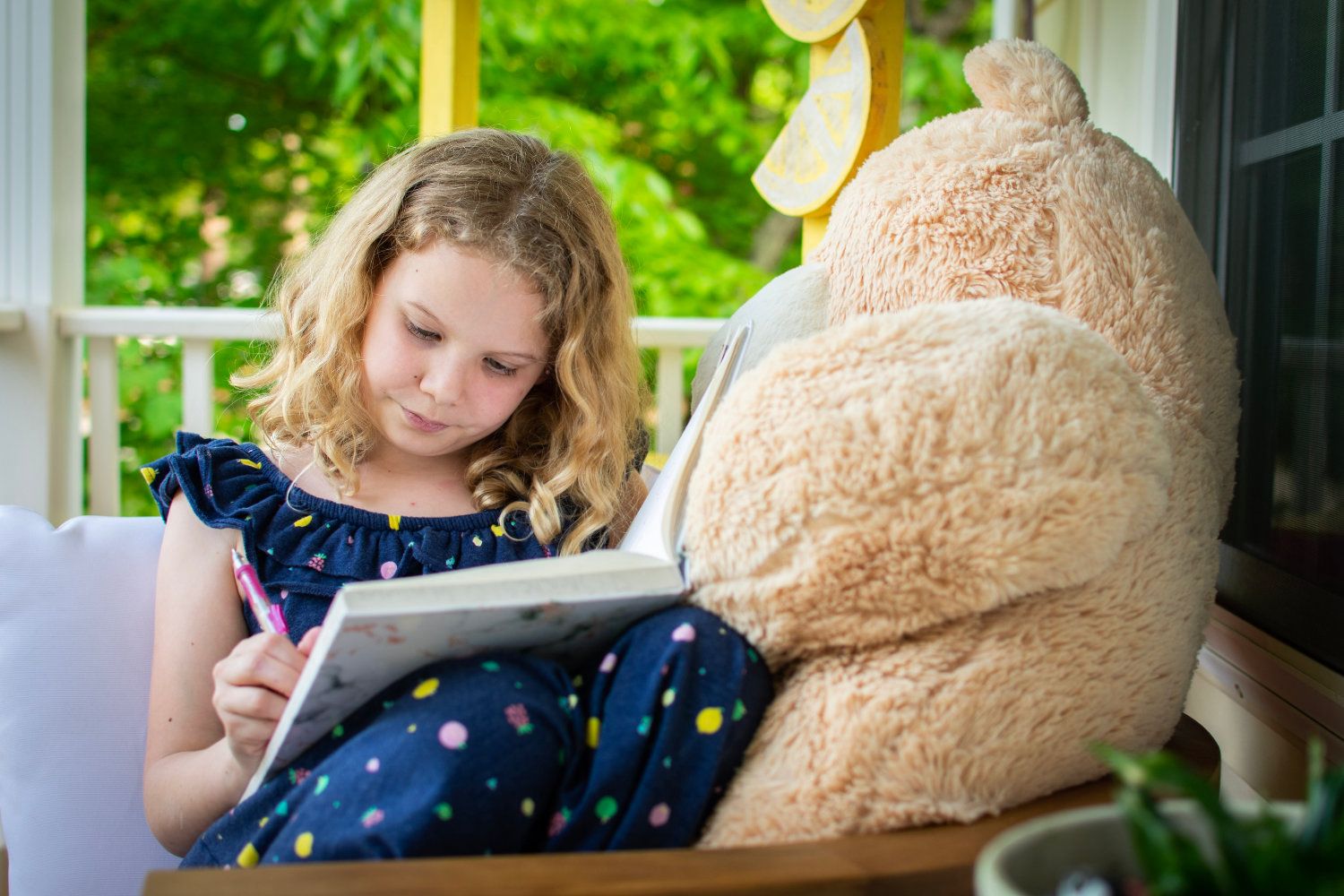Journaling as a Mindfulness Tool for Children

The benefits of journaling aren’t just for adults — children can also benefit from using journaling as a mindfulness tool.
The emotional benefits of journaling are well documented in adults. Though it’s talked about less, journaling can also be beneficial to the emotional wellbeing of kids. With a lot of kids engaging in remote learning this year, incorporating ways to reflect and get in touch with one’s inner-self has never been more important for kids. Encouraging your child to develop a mindfulness practice that includes journaling is a way that you can be supportive of your child, their growth, and their wellbeing.
Although there are many similarities to journaling for adults and kids, there are some specific things that someone who is encouraging a kid to start a journaling practice can be aware of.
1. Privacy
It’s important to communicate — and honor — that the journal is just for the kid’s eyes. Journaling is not nearly as effective if the person doing the journaling thinks there is a chance someone else may read it and, as may be the fear of many kids, take issue with what’s being expressed therein. A journal is a place for a person to explore their own emotions and experiences in a deeply honest and personal way. Unless the child feels secure that the journal is for their consumption only, they may hold back and therefore, will not get the full benefits of a journaling practice.
2. Let them own it
It’s important for a kid to own their own practice — i.e., it has to be something they themselves feel good about, not something that is forced upon them. That said, getting into the swing of a journaling practice can be difficult and does require some discipline. Therefore, it may make sense for you to, for example, encourage your child to work journaling into their routine at home. This may be particularly doable if you are engaging in remote learning this year. Working journaling into the schedule of the day is a way to make it a part of your child’s routine, which will help establish a regular practice.
3. Communication
Your child may want to share some of the discoveries they make through journaling with you. At its best, journaling brings the individual clarity on how they are feeling about something, why they feel that way, and what they want to do to move forward. Those revelations may be things that your child wants to confide in you about. If this is the case, be open and willing to discuss what your child wants to discuss, but don’t pry. Let them come to you, and let them choose what details to share, and which to hold back on.
4. Prompts
Prompts can help. Adults and children alike can sometimes have some trepidation about knowing what to write about. You should ask your child if they think it might help them for you to give them some ideas for topics to write about. But remind them that it’s not an assignment and that you won’t be reading the entry, so the prompt can really just be used as a jumping off point. It may be prudent to remind them that if they find they want to write something else, they should go for it. This can be particularly helpful for students, who are used to receiving assignments and are judged on their ability to stick to the parameters of the assignment.
5. Share experiences
Your child may need some familiarization with what a journal is, what the intentions of journaling are, and why it feels good to journal regularly. It’s a good idea to open up lines of communication around these things. If you are someone who has a journaling practice yourself, it may help your child to hear your experiences with journaling — even the not-so-shiny ones. Letting your kid know that you too struggled with getting into the swing of a practice, that you sometimes don’t know what to write about, and what you do in those instances to power through, can help your child feel reassured about any challenges they’re facing in their own practice.
6. Lead by example
Model journaling for your kid. If your kid is apprehensive about the idea of journaling, it may pay to be really open about your practice by modeling behavior around being committed to it. Journaling in the living room, for example, or saying, “I need to go in my room for 20 minutes to focus on my journal as part of my daily journaling practice, which helps me feel calm.” Kids pay more attention to the things they see us do, than they do to the things we tell them they have to do. By being open about the benefits of journaling in your own life — and your commitment to accessing those benefits — you may encourage your child to do the same.
Journaling can have immense benefits for people of all ages. Particularly at a stage in life when things can be so chaotic, children can be some of the biggest beneficiaries of the quiet reflection that a journaling practice allows. Best wishes to you and yours — and happy journaling!
